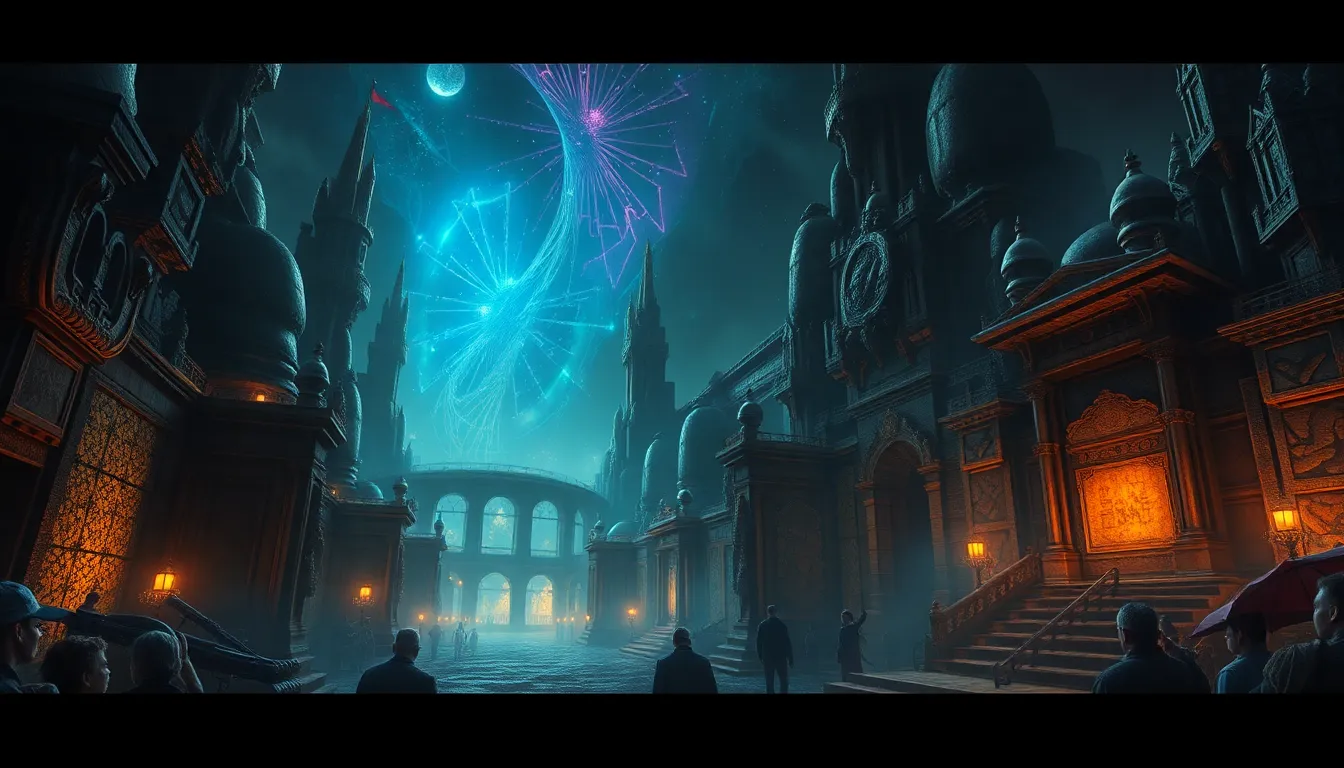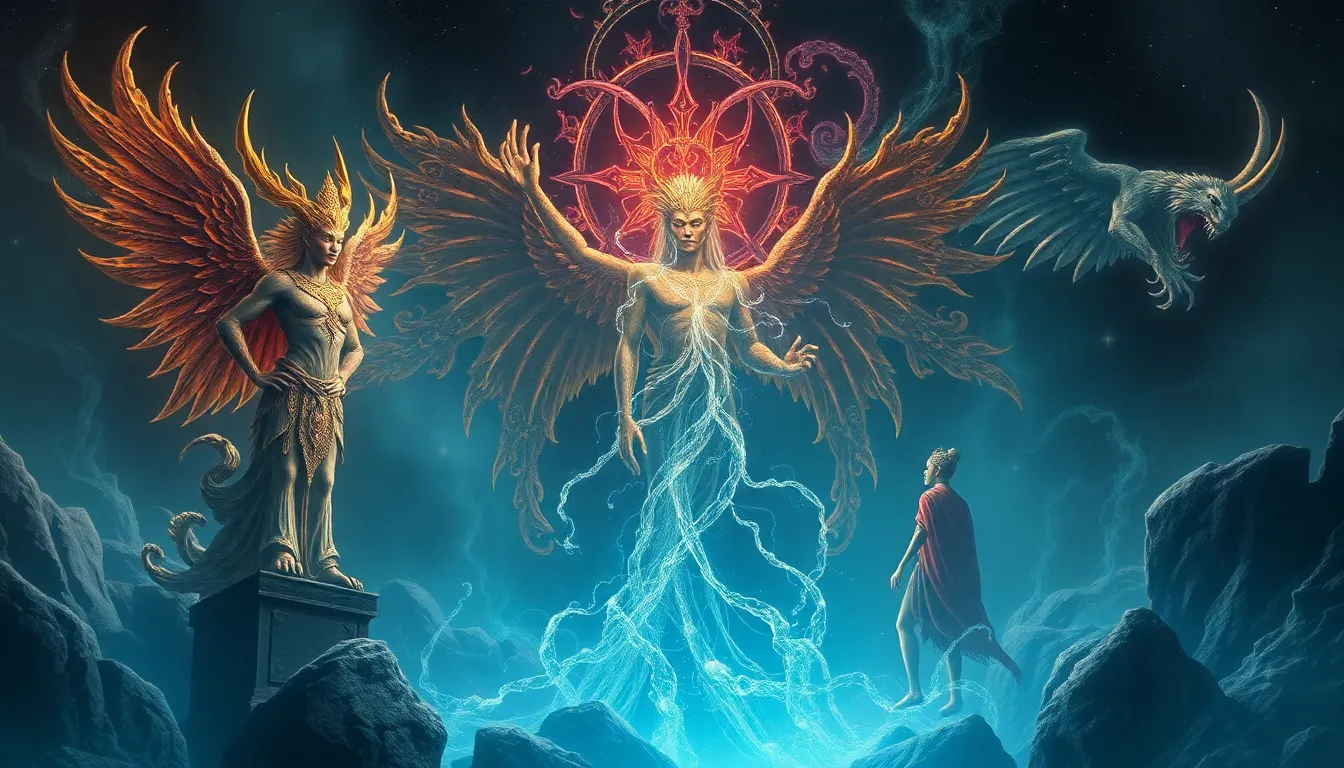The Lost Cities of Myth: Exploring Sacred Urban Legends
I. Introduction
Lost cities and urban legends have captivated human imagination for centuries. These mythical places, often shrouded in mystery and wonder, serve as a reflection of cultural aspirations, fears, and values. The allure of mythical cities lies not only in their supposed riches and advanced civilizations but also in the stories that surround them, weaving intricate narratives that span generations.
The purpose of this article is to explore various lost cities, examining their historical context, mythological significance, and the impact they have had on culture and society through the ages.
II. Historical Context of Lost Cities
Ancient civilizations across the globe have left behind remnants of their urban development, showcasing the ingenuity and ambition of their societies. From the pyramids of Egypt to the ziggurats of Mesopotamia, these structures tell a story of human progress and the desire for permanence.
The role of archaeology has been pivotal in uncovering lost cities, revealing their secrets and providing insights into the lives of those who inhabited them. As ruins are excavated, the transition from tangible locations to mythical status begins. Over time, these cities transform into legends, often exaggerated in stories passed down through generations.
III. Atlantis: The Archetype of Lost Civilizations
One of the most famous lost cities is Atlantis, first described by the philosopher Plato in his dialogues “Timaeus” and “Critias.” Plato depicted Atlantis as a powerful and advanced civilization that fell out of favor with the gods due to its hubris, leading to its eventual destruction and submersion beneath the ocean.
Numerous theories have emerged regarding the location of Atlantis, with suggestions ranging from the Mediterranean to the Caribbean. Despite extensive research, no definitive evidence has been found to confirm its existence.
The impact of Atlantis on culture is profound, inspiring countless literary works, films, and artistic interpretations. It serves as a cautionary tale about the dangers of pride and the fragility of human achievement.
IV. El Dorado: The City of Gold
The legend of El Dorado originated from South American indigenous cultures, where it was initially associated with a tribal chief who covered himself in gold dust and performed rituals by the lake. Over time, the myth evolved into a story of a city overflowing with gold and riches.
European explorers, lured by tales of unimaginable wealth, embarked on perilous expeditions to find El Dorado. Some notable figures include:
- Gonzalo Pizarro – Led an ill-fated expedition in search of the city in the 1540s.
- Sir Walter Raleigh – Sought El Dorado in the late 16th century, resulting in conflicts and consequences for indigenous populations.
The relentless pursuit of El Dorado had devastating effects on local communities, leading to exploitation and violence, forever altering the cultural landscape of South America.
V. Machu Picchu: The Sacred City of the Incas
Machu Picchu, often referred to as the “Lost City of the Incas,” holds immense historical significance. Rediscovered by American historian Hiram Bingham in the early 20th century, it is an exquisite representation of Incan architecture and ingenuity.
The connection between Machu Picchu and Incan spirituality is evident in its construction, with structures aligned to celestial events and sacred rituals. It is believed to have served as a royal estate or religious site.
Today, Machu Picchu is a UNESCO World Heritage Site and attracts millions of tourists annually. While tourism has brought economic benefits, it also poses challenges for preservation and environmental sustainability.
VI. The Lost City of Z: A Modern Myth
The Lost City of Z is a modern tale that follows British explorer Percy Fawcett, who disappeared in the Amazon rainforest in 1925 while searching for a fabled city he believed to be hidden in the jungle. Fawcett’s quest represents the intersection of adventure, exploration, and myth.
His disappearance sparked numerous theories and inspired countless adventurers to follow in his footsteps. The Lost City of Z has since become a symbol of human curiosity and the unyielding desire to uncover hidden truths.
The story’s modern implications are reflected in popular culture, including books, documentaries, and films, which continue to explore themes of exploration and the unknown.
VII. The Legend of Ys: The Submerged City of Brittany
The legend of Ys tells the tale of a magnificent city that once stood in Brittany, France, ruled by a beautiful but tragic queen named Dahut. According to folklore, the city was submerged by the sea as a punishment for its inhabitants’ sins and excesses.
Ys holds cultural significance in Breton folklore, representing themes of human folly, divine punishment, and the struggle between land and sea. The story has inspired various artistic representations, from literature to visual arts, influencing contemporary culture through its poignant moral lessons.
VIII. The City of Ubar: The Atlantis of the Sands
Ubar, also known as Iram, is described in Islamic texts as a prosperous city that fell victim to divine retribution, disappearing beneath the sands of the Arabian Peninsula. Its origins can be traced back to ancient tales and texts, where it is depicted as a place of indulgence and decadence.
Theories regarding Ubar’s location vary, with suggestions ranging from Oman to Yemen. The legend of Ubar has inspired explorations and literary works, captivating imaginations and reinforcing the idea of lost civilizations as cautionary tales.
IX. Comparative Analysis of Sacred Urban Legends
While each lost city has its unique story, common themes emerge among these urban legends, including:
- Morality: Many tales emphasize the consequences of hubris and moral failings.
- Divine Retribution: The punishment of cities often reflects a divine reaction to the inhabitants’ actions.
- Cultural Values: The legends reveal the cultural beliefs and values of the societies that created them.
These themes resonate across cultures and time, illustrating humanity’s enduring fascination with the lessons embedded in these myths.
X. Conclusion
The enduring fascination with lost cities is a testament to humanity’s quest for meaning, understanding, and connection with the past. These urban legends serve not only as cautionary tales but also as reflections of our aspirations and fears. As we continue to explore our world, the search for lost cities invites us to ponder our legacy and the stories we leave behind.




